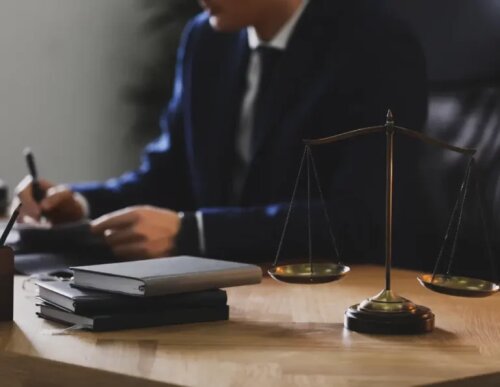Best Restructuring & Insolvency Lawyers in Charlotte
Share your needs with us, get contacted by law firms.
Free. Takes 2 min.
List of the best lawyers in Charlotte, United States
About Restructuring & Insolvency Law in Charlotte, United States
Restructuring & insolvency law in Charlotte, United States, is a specialized area of legal practice that helps individuals and businesses manage financial distress. Charlotte, as a major commercial and financial center in North Carolina, has a strong network of legal professionals and courts equipped to handle complex insolvency matters. This field covers bankruptcy filings, out-of-court workouts, reorganizations, debt negotiations, and asset protection strategies to help debtors regain financial stability or equitably resolve creditor claims. Both federal laws, such as the Bankruptcy Code, and North Carolina state laws play a critical role in shaping the legal landscape for restructuring and insolvency in Charlotte.
Why You May Need a Lawyer
Legal help can be essential in restructuring and insolvency matters. Here are common situations where consulting a lawyer is beneficial:
- You are struggling to pay debts or facing creditor lawsuits
- Your business is experiencing cash flow problems or declining revenue
- You want to explore bankruptcy options, including Chapter 7, 11, or 13
- A creditor is attempting foreclosure or repossession of assets
- You need to negotiate repayment plans or debt restructuring with creditors
- You are involved in commercial disputes linked to insolvency
- You are planning to buy assets from a distressed company
- You serve as a director or officer and need guidance on legal duties in financial distress
An experienced restructuring and insolvency lawyer can assess your situation, guide you through legal complexities, protect your rights, and help you achieve the best possible outcome.
Local Laws Overview
In Charlotte, restructuring and insolvency issues are governed primarily by federal law (the United States Bankruptcy Code), while certain matters also fall under North Carolina statutes. The federal bankruptcy courts, including the United States Bankruptcy Court for the Western District of North Carolina, are located in Charlotte and have jurisdiction over most insolvency proceedings.
Key aspects relevant to Charlotte include:
- Bankruptcy Chapters: Chapter 7 (liquidation), Chapter 11 (reorganization), and Chapter 13 (individual repayment plans) are the most common filings.
- Automatic Stay: Filing for bankruptcy triggers an automatic stay, halting collections and legal actions against the debtor.
- Exemptions: North Carolina determines asset exemptions that individuals can keep during bankruptcy, which differ from other states.
- Out-of-Court Workouts: Businesses in Charlotte often work with creditors to restructure debts outside of court to avoid bankruptcy when possible.
- Assignments for the Benefit of Creditors: North Carolina law also allows for this alternative to bankruptcy, where assets are assigned to a third party to pay off creditors.
Knowing the balance between federal and local laws is crucial, as procedures and available protections may differ from those in other states.
Frequently Asked Questions
What types of bankruptcy can be filed in Charlotte?
Individuals most often file under Chapter 7 or Chapter 13, while businesses typically file under Chapter 7 or Chapter 11. Chapter 7 is liquidation, Chapter 13 involves a repayment plan for individuals, and Chapter 11 allows businesses to reorganize and continue operations.
Where are bankruptcy cases filed in Charlotte?
Bankruptcy cases are filed at the United States Bankruptcy Court for the Western District of North Carolina, which is located in Charlotte.
Do I have to liquidate all my assets in bankruptcy?
No, North Carolina law provides exemptions for certain personal property, such as a portion of equity in your home, vehicle, clothing, and other necessities. Your lawyer can explain which assets are protected.
What is an automatic stay and how does it protect me?
An automatic stay is a legal protection that takes effect when you file for bankruptcy. It stops creditors from attempting to collect debts, foreclose, repossess property, or pursue lawsuits.
Are all debts dischargeable in bankruptcy?
Not all debts can be discharged. Common non-dischargeable debts include most taxes, student loans (with exceptions), child support, and some court judgments. A lawyer can review your specific debts.
Can I choose between bankruptcy and other alternatives?
Yes, alternatives may include debt consolidation, negotiated settlements, or out-of-court restructurings. An attorney can help determine the most appropriate strategy for your situation.
What happens to my credit after filing for bankruptcy?
Bankruptcy will appear on your credit report for several years, which may affect your ability to obtain new credit. Over time, with responsible financial habits, credit can be rebuilt.
Do business owners have personal liability for business debts?
This depends on the business structure and whether you have personally guaranteed the debts. Corporations and LLCs typically provide some liability protection, but exceptions apply.
How long does the bankruptcy process take in Charlotte?
Chapter 7 bankruptcy can take several months to complete, while Chapter 13 and Chapter 11 cases can last from several months to several years, depending on the plan.
What are the costs associated with filing for bankruptcy?
Costs include court filing fees, mandatory credit counseling fees, and attorney fees. Your lawyer will provide a breakdown of all expected costs up front.
Additional Resources
Several organizations and governmental bodies provide resources for individuals and businesses facing restructuring and insolvency challenges in Charlotte:
- United States Bankruptcy Court for the Western District of North Carolina - for case filings, procedural information, and local rules
- North Carolina Bar Association - provides lawyer directories and free legal information
- Legal Aid of North Carolina - offers support for qualifying low-income individuals
- Credit counseling agencies approved by the U.S. Trustee Program
- The Charlotte Business Resource Center - offers support for small businesses including information on financial distress
Next Steps
If you are facing financial distress or considering restructuring or bankruptcy, act quickly to protect your rights. Here is how you can proceed:
- Assess Your Situation: Review your debts, income, and assets to understand your financial position.
- Consult a Lawyer: Find an attorney in Charlotte who is experienced in restructuring and insolvency. Many offer initial consultations.
- Gather Documentation: Prepare records of all debts, assets, bank accounts, income, tax returns, and legal correspondence.
- Discuss All Options: Work with your lawyer to explore bankruptcy and non-bankruptcy solutions based on your specific needs.
- Stay Informed: Continue to educate yourself about local laws and procedures to make well-informed decisions.
Facing insolvency or restructuring is challenging, but with the right guidance and information, you can navigate the path toward financial recovery in Charlotte.
Lawzana helps you find the best lawyers and law firms in Charlotte through a curated and pre-screened list of qualified legal professionals. Our platform offers rankings and detailed profiles of attorneys and law firms, allowing you to compare based on practice areas, including Restructuring & Insolvency, experience, and client feedback.
Each profile includes a description of the firm's areas of practice, client reviews, team members and partners, year of establishment, spoken languages, office locations, contact information, social media presence, and any published articles or resources. Most firms on our platform speak English and are experienced in both local and international legal matters.
Get a quote from top-rated law firms in Charlotte, United States — quickly, securely, and without unnecessary hassle.
Disclaimer:
The information provided on this page is for general informational purposes only and does not constitute legal advice. While we strive to ensure the accuracy and relevance of the content, legal information may change over time, and interpretations of the law can vary. You should always consult with a qualified legal professional for advice specific to your situation.
We disclaim all liability for actions taken or not taken based on the content of this page. If you believe any information is incorrect or outdated, please contact us, and we will review and update it where appropriate.












